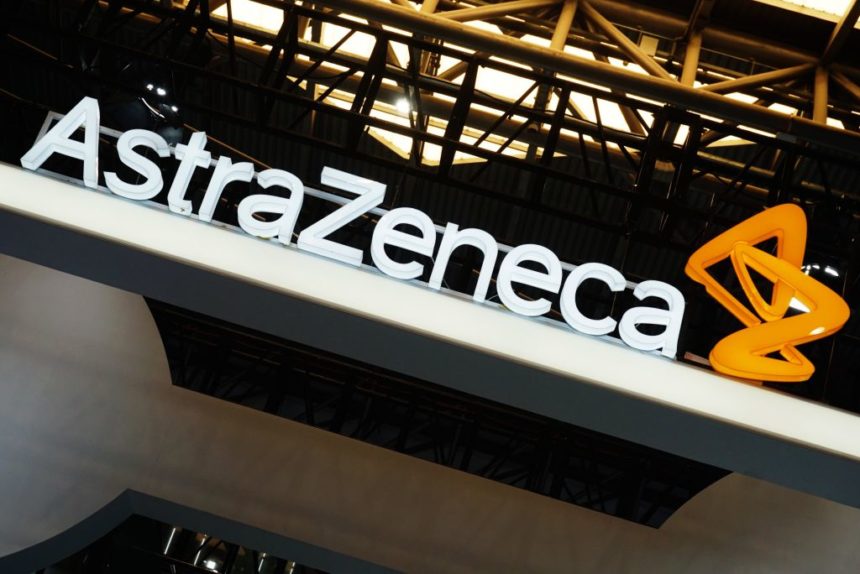In a move that reflects the increasingly competitive nature of the weight-loss treatment space, AstraZeneca bought the rights to a GLP-1 drug candidate from Eccogene for $185 million upfront Thursday morning.
As part of the deal, AstraZeneca is acquiring the exclusive rights to ECC5004, an investigational oral once-daily pill for treating obesity, type 2 diabetes and other cardiometabolic conditions.
In preliminary results from a Phase 1 trial, ECC5004 displayed good tolerability and encouraged glucose and body weight reduction across the dose levels tested compared to the placebo.
In addition to the upfront payment, Eccogene is eligible to receive up to an additional $1.3 billion based on clinical, financial and regulatory milestones as well as tiered royalties tied to product net sales.
AstraZeneca will be able to develop and commercialize ECC5004 for any indication worldwide except in China, where Eccogene has the right to co-develop and co-commercialize the drug.
Diving headfirst into the GLP-1 space, AstraZeneca is seeking to join rival drugmakers by maximizing opportunities around treating diabetes and weight loss.
“Building on the promising Phase I clinical data generated by Eccogene, we believe this oral GLP-1RA molecule could offer alternatives to current injectable therapies both as a potential monotherapy as well as in combination for cardiometabolic diseases such as type-2 diabetes, as well as for obesity,” Sharon Barr, EVP of biopharmaceuticals research and development at AstraZeneca, said in a statement. “ECC5004 further strengthens our existing pipeline addressing both incretin and non-incretin pathways, including our GLP-1/glucagon dual agonist [AZD9550] and long-acting amylin analogue [AZD6234].”
AstraZeneca made the announcement as the GLP-1 drug arms race between Novo Nordisk and Eli Lilly continues to heat up.
On Wednesday afternoon, the Food and Drug Administration greenlit Lilly’s type 2 diabetes drug tirzepatide for use in chronic weight management. The treatment, which was known as Mounjaro for type 2 diabetes, will be known as Zepbound for obesity.
Strong earnings follow GLP-1 deal
In addition to the major GLP-1 play, AstraZeneca also released its most recent earnings report.
At constant exchange rates (CER), AstraZeneca’s total revenue grew 13% to $11.4 billion during Q3 when COVID-19 products were excluded. For the first nine months of the year, when COVID-19 products were excluded, the company’s total revenue jumped 15% at CER.
During the quarter, the drugmaker’s collaboration revenue slid 47% but its alliance revenue rose 75% while its product sales inched up 5%.
The company’s core earnings per share (EPS) increased 9% during the quarter to $1.73, though its reported EPS dropped 6% to $0.89.
Looking ahead, AstraZeneca also increased its full-year guidance for total revenue excluding COVID products and for its core EPS.
Total revenue is now expected to increase by a low-teens percentage while core EPS is slated to increase by a low double-digit to low-teens percentage.
AstraZeneca CEO Pascal Soriot praised the company’s financial performance and trajectory in a statement accompanying the announcement.
“We initiated several Phase III trials of high-potential molecules this quarter, including for volrustomig, our PD-1/CTLA-4 10 bispecific antibody,” Soriot stated.. “Our portfolio of bispecifics has the potential to replace the first-generation checkpoint inhibitors across a range of cancers. We also initiated a fixed dose combination study of zibotentan with Farxiga which has the potential to significantly improve outcomes for patients with kidney disease not well controlled on current standard of care.”
AstraZeneca stays active
Outside of its GLP-1 license deal and earnings release, the British pharma giant also published data from a Phase 3 trial showing that Imfinzi (durvalumab) in combination with transarterial chemoembolisation (TACE) and bevacizumab met its primary endpoint of progression-free survival versus TACE alone in patients with hepatocellular carcinoma eligible for embolization, a type of liver cancer.
The company said the safety profiles for the treatment was consistent with the known profile of each medicine and that there were no new safety findings.
AstraZeneca has positioned itself to compete with other drugmakers across a number of disease states, including in lung cancer with a Tagrisso-based combo.
Earlier this month, AstraZeneca also provided France-based biotechnology company Cellectis with a $220 million equity investment as part of a collaboration agreement that leverages Cellectis’ gene editing technologies.
The company announced late last month that the FDA will review its supplemental Biologics License Application for its self-administered nasal flu vaccine, FluMist Quadrivalent. If approved, FluMist Quadrivalent would be the first flu vaccine available to be self-administered by eligible patients or caregivers.







